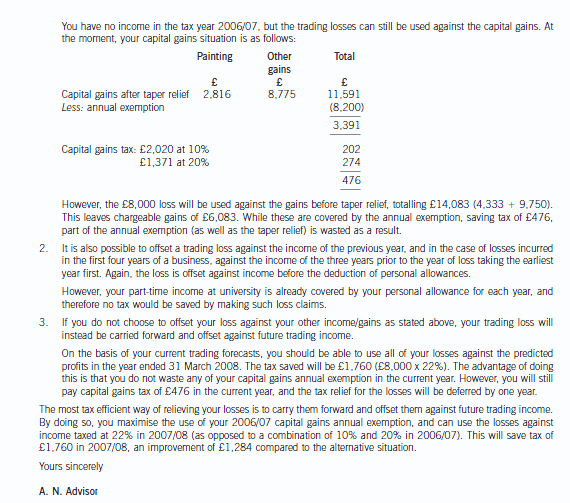新疆考生想知道ACCA的科目F1怎么备考?
发布时间:2020-01-10
步入2020年,离ACCA考试越来越近了,虽然在ACCA考试中F1科目是难度比较低的一个考试科目了,但还是很多ACCAer们不知道如何备考考试科目F1。不用担心,小伙伴们所遇到的问题51题库考试学习网都一一帮助大家找寻到了答案,现在就来告诉你:
F1科目介绍
首先要明确,F1全部都是选择题,包括填空下拉框选择,并且部分内容根据你的常识(遇到表示绝对、极端、否定的词汇,要留个心眼)一般来说你都是可以根据常识做出来的。所以第一步要做的就是稳住阵脚,及时调整好自己的心态,找回考试的状态,不要因为是全英就慌。
作为ACCA考试的第一科,通常来说初次备考ACCA考试的同学都会选择先考F1,因为F1在整个考试的知识体系中起着提纲挈领的作用。就像修高楼大厦,如果地基不打好,即便修成了高楼也会轻而易举被夷为平地。虽然很多人说F1是第一门,也是最简单的,但是这并不代表就可以对此掉以轻心。对于初学者还是有一定困难的,这一门考试的内容包括很多,但仔细梳理一下,主要是这三方面的内容:组织行为学、人力资源管理、会计和审计。
其中,组织行为学包括:组织结构,个体,群体,团队管理,组织文化,管理原理和领导理论,激励理论和沟通原理等。
人力资源管理方面的内容包括:招聘选拔,公平工作机会和多样化员工管理,员工培训和开发,绩效考评和工作健康,安全等。
会计和审计方面的内容主要包括:会计职能,内审外审,内部控制,公司治理和欺诈等。
除此之外,F1还会考察经济学、战略管理、市场学、信息管理和时间管理、职业道德方面的知识。
学习方法
F1这门课以概念定义题为主,知识点较多,必须在理解的基础上才能尽可能的掌握课程要点。要在课下提高英语的阅读速度和词汇量,如果题目读不懂,肯定很难做答。特别是对于刚接触ACCA的国际实验班学生会产生排斥心理,这就需要考生在备考阶段,反复阅读课本,讲义,以及BPP练习册及后面的解析。看书的时候,无论教材还是讲义,都要正确理解、融会贯通,千万不要死记硬背。毕竟大纲里对F1的要求是fundamental level,这代表只需“基本理解”。一句话概括:F1的pass=大量阅读+理解+记忆关键理论或关键词。
考试形式及题型
考试为机考,提交试卷后即出成绩,50分为通过。
Section A
46道选择题,30道2分题,16道1分题,共76分。
Section B
6道大题,每个题有2个任务题,每题2分,共24分
学霸总结与备考建议
F1课程的内容追求广度而不是精度,同学们主要是以了解整个商业世界中的基础理论与概念为学习目标,不必刨根问底,F1的作用在于让你对整个ACCA体系有一个大概的认识。所以,本门课的通过秘诀在于,尽可能拓展自己的知识面并且对F1课程有逻辑清晰的理解,整理知识框架,重点是对理论概念的理解及其优缺点的掌握,对科学家提出的理论的掌握以及人名的对应,重点概念及相似概念的区分。
Part A
(The business organization its stakeholders the external environment)重点是不同组织的特点,Mendelow 矩阵及PESTEL模型中的P,Political 的政治因素和T,technology 科技因素对组织机构的影响。宏观经济中,要重点掌握政府调控经济的4大目标(包括不同类型的企业),财政政策和货币政策。微观经济学中,需理解PED,IED及CED公式及其弹性的影响,需求曲线及供给曲线的点的移动及平移。
Part B(Business organization structure
functions and governance)重点是不同的组织结构,其中的专业定义的解释,以及非正式组织的优缺点。不同的组织文化以及文化的三要素也是重点。
Part C
(Accounting and reporting system and technology: compliance, control and
security)重点是会计信息系统,internal control system,internal audit system,以及舞弊.
PartD(learning and managing individuals
and teams)全部很重要,管理学及其理论,定义和区分,激励理论,学习理论以及业绩评估为重中之重。
PartE(Personal,effectiveness,and,communication)其中个人有效性及交流图需要着重理解。
Part
F (Professional ethics in accounting and business)知识点考的频率较高,Code of Ethics 的理解很重要。
怎能抛功名,畅游在海外。绞尽脑汁干,名在孙山外。两袖清风去,何苦染尘埃。祝大家考试成功!
下面小编为大家准备了 ACCA考试 的相关考题,供大家学习参考。
(ii) Write a letter to Donald advising him on the most tax efficient manner in which he can relieve the loss
incurred in the year to 31 March 2007. Your letter should briefly outline the types of loss relief available
and explain their relative merits in Donald’s situation. Assume that Donald will have no source of income
other than the business in the year of assessment 2006/07 and that any income he earned on a parttime
basis while at university was always less than his annual personal allowance. (9 marks)
Assume that the corporation tax rates and allowances for the financial year 2004 and the income tax rates
and allowances for 2004/05 apply throughout this question.
Relevant retail price index figures are:
January 1998 159·5
April 1998 162·6
(ii) [Donald’s address] [Firm’s address]
Dear Donald [Date]
I understand that you have incurred a tax loss in your first year of trading. The following options are available in respect
of this loss.
1. The first option is to use the trading loss against other forms of income in the same year. If such a claim is made,
losses are offset against income before personal allowances.
Any excess loss can still be offset against capital gains of the year. However, any offset against capital gains is
before both taper relief and annual exemptions.

(ii) Receivables, showing separately the deduction of the allowance for receivables.

(b) Advise Sergio on the appropriateness of investing in a domestic rental property in view of his personal
circumstances and recommend suitable alternative investments giving reasons for your advice. (4 marks)
(b) Sergio’s investments
Sergio aims to leave a substantial asset to his family on his death. Accordingly, in view of his age, he is right to be considering
investing in an asset whose value is unlikely to fall suddenly, such as a domestic rental property. However, it must be
recognised that although the value of land and buildings can usually be relied on to increase over a long period of time, its
value may fall over a shorter period. The only investments that cannot fall in value are cash deposits, although they do, of
course, fall in real terms due to the effects of inflation.
Sergio should consider whether or not he wishes to increase his annual income. The return on capital invested in a domestic
rental property is unlikely to be very high due to the recent increases in property values in the UK. Also, there are likely to be
periods when the house is unoccupied during which no income will be generated. If it is important to Sergio to generate
additional income he should consider other low-risk investments with a more reliable and higher rate of return, for example,
gilt edged stocks, unit trusts and cash deposits.
Sergio must also decide whether it is important to him to be able to access capital quickly, as it is usually not possible to
realise the capital invested in land and buildings at short notice. If this is important, Sergio should consider holding some of
his capital in cash deposits or other liquid investments, eg unit trusts.
Sergio could invest up to £7,000 each year in an individual savings account (ISA). A maximum of £3,000 can be held as a
cash deposit with the balance invested in quoted shares. The income and gains arising on the funds invested would be
exempt from both income tax and capital gains tax. This would be a relatively low-risk investment and would also be
accessible quickly if required.
声明:本文内容由互联网用户自发贡献自行上传,本网站不拥有所有权,未作人工编辑处理,也不承担相关法律责任。如果您发现有涉嫌版权的内容,欢迎发送邮件至:contact@51tk.com 进行举报,并提供相关证据,工作人员会在5个工作日内联系你,一经查实,本站将立刻删除涉嫌侵权内容。
- 2020-04-04
- 2020-05-09
- 2020-01-10
- 2020-04-30
- 2020-08-15
- 2020-01-10
- 2020-05-15
- 2020-02-18
- 2020-04-15
- 2020-01-15
- 2020-05-03
- 2020-01-10
- 2020-01-03
- 2020-01-10
- 2020-03-07
- 2020-04-11
- 2020-03-08
- 2020-03-26
- 2020-03-18
- 2020-01-09
- 2020-01-10
- 2020-01-09
- 2020-01-04
- 2020-01-10
- 2020-05-02
- 2020-05-05
- 2020-03-26
- 2020-01-10
- 2020-01-09
- 2020-05-09